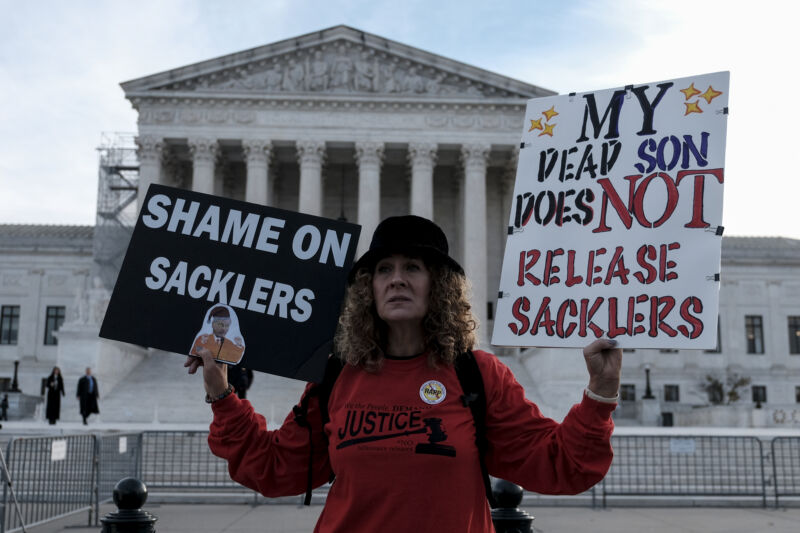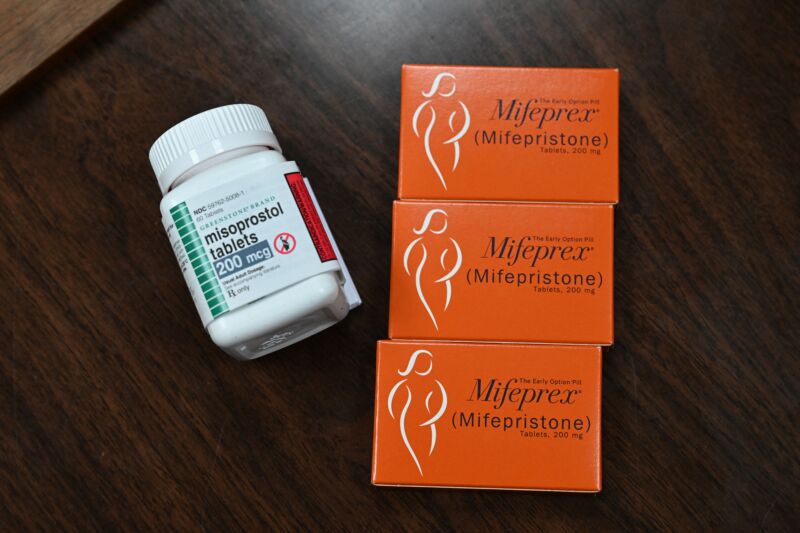SCOTUS tears down Sacklers’ immunity, blowing up opioid settlement

Enlarge / Grace Bisch holds a picture of stepson Eddie Bisch who died as a result of an overdose on outside of the U.S. Supreme Court on December 4, 2023 in Washington, DC. The Supreme Court heard arguments regarding a nationwide settlement with Purdue Pharma, the manufacturer of OxyContin. (credit: Getty | Michael A. McCoy)
In a 5-4 ruling, the US Supreme Court on Thursday rejected an opioid settlement plan worth billions over the deal's stipulation that the billionaire Sackler family would get lifetime immunity from further opioid-related litigation.
While the ruling may offer long-sought schadenfreude over the deeply despised Sackler family, it is a heavy blow to the over 100,000 people affected by opioid epidemic who could have seen compensation from the deal. With the high court's ruling, the settlement talks will have to begin again and the outcome and possible payouts to plaintiffs are uncertain.
Between 1999 and 2019, as nearly 250,000 Americans died from prescription opioid overdoses, members of the Sackler family siphoned approximately $11 billion from the pharmaceutical company they ran, Purdue Pharma, maker of OxyContin, according to the high court's ruling. In 2007, amid the nationwide epidemic of opioid addiction and overdoses, Purdue affiliates pleaded guilty in federal court to falsely branding the highly-addictive OxyContin as less addictive and less abusive than other pain medications. Out of fear of future litigation, the Sacklers began a "milking program," the high court noted, draining Purdue of roughly 75 percent of its assets.
